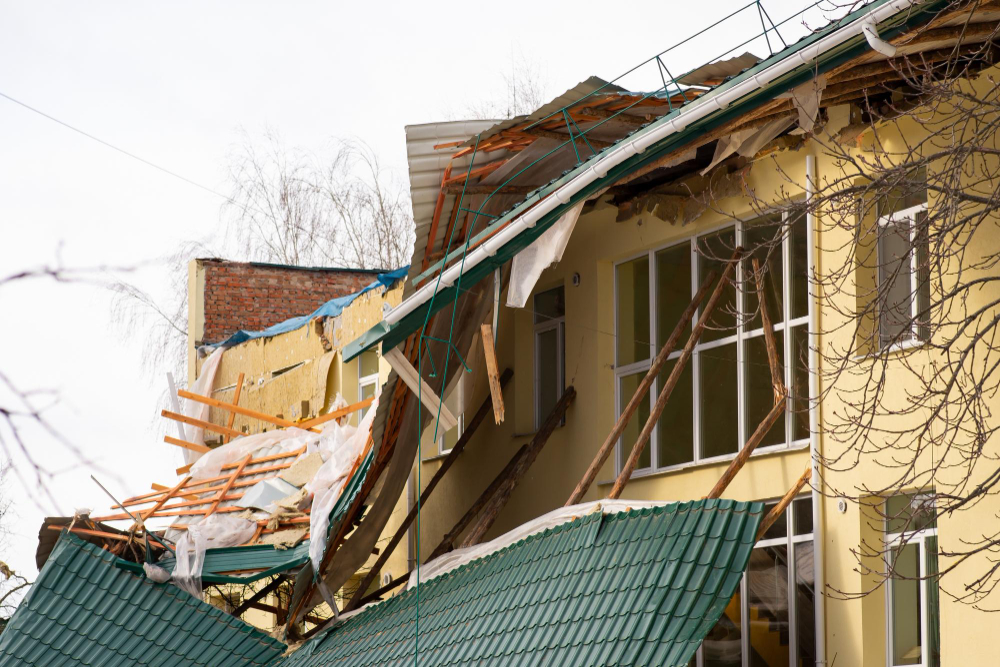 (888) 979-7969
(888) 979-7969
 (888) 979-7969
(888) 979-7969

Orlando is renowned for its sunny climate and as the ultimate destination for family fun and entertainment, yet even the 'Sunshine State' is not immune to the occasional bout of severe weather. Tropical storms, hurricanes, and extreme rainfall can pound the city with fierce winds and relentless precipitation, posing substantial risks to properties and businesses alike. It's not a question of 'if,' but 'when' these storms will arrive, and being prepared is paramount. This comprehensive guide will walk you through essential tips to safeguard your property, secure insurance coverage, and recover swiftly and effectively in the event of storm damage.
The first line of defense against severe weather is your building envelope—your roof, windows, doors, and walls. Ensuring that these components are in top shape can significantly decrease the risk of storm-related damage. Start with a thorough inspection to identify weak spots, leaks, and areas that might not withstand high winds. Investing in impact-resistant glass, reinforced garage doors, and a robust roofing system can provide added protection.
Your outdoor environment can become a hazard during severe weather, with trees, shrubs, and debris becoming airborne projectiles in strong winds. Pruning heavy branches, securing outdoor furniture, and clearing gutters and drainage systems can minimize risk. Additionally, consider using wind-resistant plants and materials for your landscape to reduce the likelihood of damage during storms.
Drafting a family emergency plan is crucial for safety and peace of mind. The plan should include designated meeting points, communication strategies, and a well-stocked emergency kit. Be sure to include important documents, insurance policies, medical records, and essentials like food, water, and any necessary medications. Regularly review and rehearse your plan with all household members.
Information is your best ally in an emergency. Stay tuned to local weather reports and alerts. Sign up for emergency notification systems provided by your local government and keep a weather radio handy. Ensure you know the evacuation routes and shelter locations in your area, and keep an updated list of emergency contacts.
Take time to secure your home before the storm arrives. This includes installing storm shutters, bracing garage doors, reinforcing entry points, and anchoring outdoor objects. If you have time, move valuable or easily damaged items to higher ground or upper levels of your property. Secure important documents and personal items in waterproof containers.
Prepare for the aftermath by having essential tools, materials, and documents readily available. This includes a generator, batteries, flashlights, and a first-aid kit. Document your property before the storm hits with photographs or video, and keep your insurance information accessible. Additionally, make a list of emergency repair services and have their contact information at the ready.
After the storm has passed, your primary concern should be safety. Check for downed power lines, gas leaks, and structural damage. Do not enter a building if you suspect it's unsafe. Use caution when inspecting for damage, and consider hiring a professional to assess the integrity of your property.
Thorough documentation is crucial for your insurance claim. Take photographs and videos of all damage, both inside and outside your property. Make detailed notes of the date, time, and specifics of the damage. If it's safe to do so, make temporary repairs to prevent further damage and keep all receipts.
Contact your insurance provider as soon as possible to begin the claims process. Provide all necessary information and documentation. Be prepared for an adjuster to visit your property to assess the damage. It's important to be present during this visit to ensure that all damage is accurately recorded.
In some cases, working with a public adjuster can help you navigate the claims process more effectively. Public adjusters are licensed professionals who work on behalf of policyholders, not the insurance company. They can assess your policy, assist with damage documentation, and negotiate for a fair settlement.
When it's time to rebuild, focus on safety and resilience. Work with reputable contractors, secure proper permits, and ensure that all work is up to code. Consider incorporating storm-resistant materials, designs, and techniques into your reconstruction. This can mitigate future storm damage and potentially lower your insurance premiums.
Use the experience of a severe storm to improve and refine your emergency preparedness plan. Identify any gaps or areas for enhancement. Revisit your property's resilience measures and update them as needed. Continuous improvement will better prepare you for future weather events and minimize the impact on your property.
If you encounter issues with your insurance claim or feel unfairly treated, familiarize yourself with your rights as a policyholder. Consider seeking legal counsel to help you understand and enforce your rights. It's important to advocate for yourself and ensure you receive the coverage you're entitled to.
Preparing for and recovering from severe weather is a group effort that requires planning, vigilance, and resilience. By taking proactive steps to protect your property and understanding the insurance process, you can weather any storm that comes your way. Remember, your safety and well-being always come first, so stay informed and be prepared. If you need assistance with navigating the insurance claims process, know that the team at Ultra Property Damage is here to support you. Together, we can stay ahead of the storm and emerge stronger on the other side. If you need help with property claims in Orlando, FL, contact Ultra Property Damage today for a free consultation.